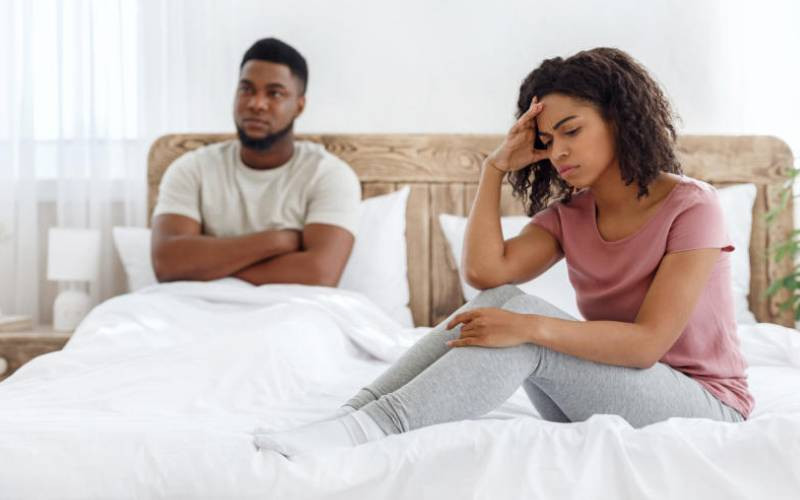
Sleep is vital to every human being, as it relaxes the body and mind. But how sufficient is sleep among married couples, who share a bed, staying snug into each other’s arms all night?
Beatrice Mwaniga, a resident of Kahawa Sukari in Nairobi tells The Nairobian that though she shares a bed with her husband, she suffers sleep deprivation.
“Though I share a bed with my husband, I do not enjoy enough sleep, because he snores,” she says.
 The Standard Group Plc is a multi-media organization with investments in media
platforms spanning newspaper print
operations, television, radio broadcasting, digital and online services. The
Standard Group is recognized as a
leading multi-media house in Kenya with a key influence in matters of national
and international interest.
The Standard Group Plc is a multi-media organization with investments in media
platforms spanning newspaper print
operations, television, radio broadcasting, digital and online services. The
Standard Group is recognized as a
leading multi-media house in Kenya with a key influence in matters of national
and international interest.



